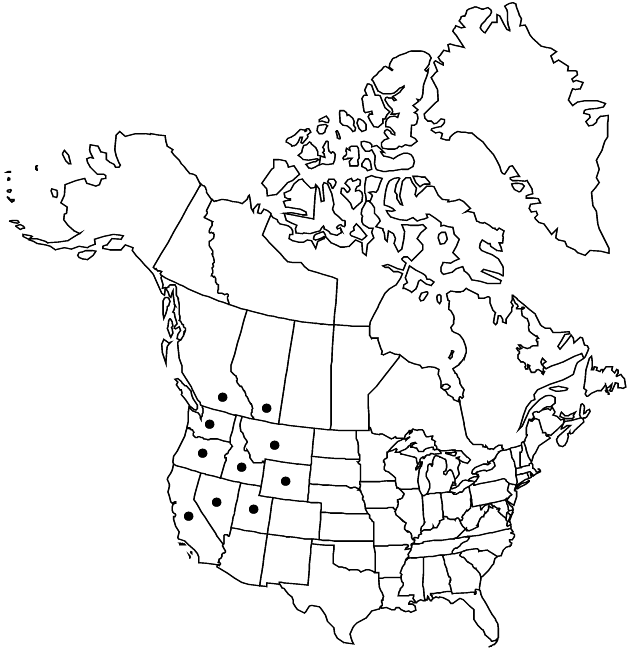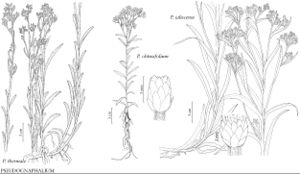Difference between revisions of "Pseudognaphalium thermale"
Sida 21: 781. 2004.
imported>Volume Importer |
imported>Volume Importer |
||
| Line 83: | Line 83: | ||
|publication year=2004 | |publication year=2004 | ||
|special status=Illustrated;Endemic | |special status=Illustrated;Endemic | ||
| − | |source xml=https:// | + | |source xml=https://bitbucket.org/aafc-mbb/fna-data-curation/src/2e0870ddd59836b60bcf96646a41e87ea5a5943a/coarse_grained_fna_xml/V19-20-21/V19_685.xml |
|tribe=Asteraceae tribe Gnaphalieae | |tribe=Asteraceae tribe Gnaphalieae | ||
|genus=Pseudognaphalium | |genus=Pseudognaphalium | ||
Latest revision as of 19:54, 5 November 2020
Perennials, (20–)30–70 cm; taprooted. Stems loosely tomentose, not glandular. Leaf blades narrowly oblanceolate, 3–8 cm × 3–6 mm (gradually smaller distally, becoming linear), bases not clasping, decurrent 5–14 mm, margins flat, faces concolor, loosely tomentose, sessile-glandular beneath tomentum. Heads in loose to dense, corymbiform to paniculiform arrays. Involucres turbinate-campanulate, (4–)5–6 mm. Phyllaries in 3–4(–5) series, whitish (hyaline or opaque, usually shiny, sometimes dull), ovate to ovate-oblong (outer broadly acute, inner rounded-apiculate), glabrous. Pistillate florets 35–55. Bisexual florets (2–)4–7. Cypselae ridged, densely papillate-roughened.
Phenology: Flowering Jun–Sep(–Oct).
Habitat: Dry, sandy road banks, roadside ditches, streambeds and banks, lakeshores, granitic sand, open woods of yellow pine, Jeffrey pine, red fir, Douglas fir, mixed conifer, and mixed evergreen
Elevation: (50–)300–2300(–2500) m
Distribution

Alta., B.C., Calif., Idaho, Mont., Nev., Oreg., Utah, Wash., Wyo.
Discussion
Selected References
None.
